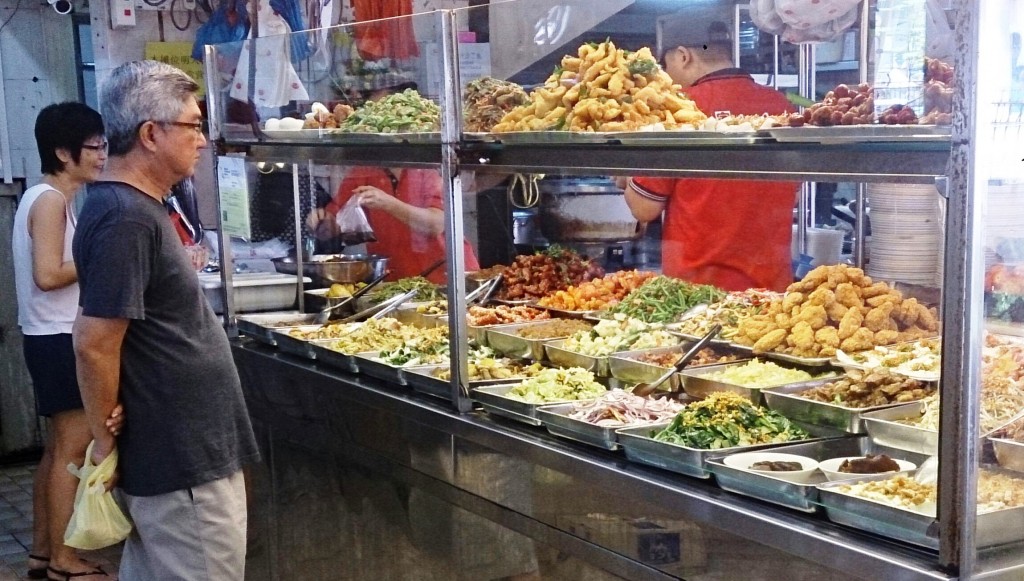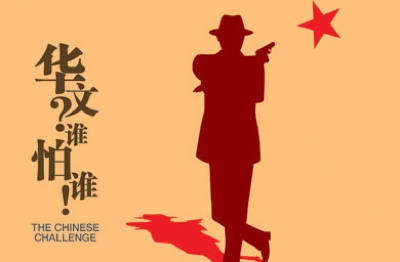The Singapore Government's original intention of encouraging Mandarin was to get Chinese Singaporeans of different dialect groups to adopt a common language. That worked, to some extent.
Subsequently, former Prime Minister Lee Kuan Yew championed that mastering Mandarin would give Singaporeans a foot in China's door.
The Speak Mandarin Campaign, which started in 1979, is Singapore's longest running campaign. The campaign did not stop an increasing number of younger generations of Singaporeans from using English as the main spoken language at home. Evidence can be found here and here.
Is speaking Mandarin still the key that unlocks Singapore's door to China?
It would not be a stretch to assume that the reason for the flight towards English is because Chinese is difficult to pick up and master. China's People's Daily lists Chinese as the hardest language to learn. It notes that "its written form has no clues as to how it is actually pronounced. The tone system also is a pain because there are many homophones in Chinese only distinguishable by the four tones. Even this is often not enough unless the actual context and exact phrase are identified."
With China's economic rise to the top looking like a done deal within the next two decades, what can Singapore do to stay relevant and have a bite of that pie?
Many Singaporeans' Mandarin is only limited to ordering chap cai png during lunch or daily conversations with older relatives. In order words, the average Singaporeans' Chinese lexicon is wanting. Not forgetting, there are many Singaporeans who studied a different mother tongue in school. How can they benefit from China's rise?
 You will be hard-pressed to find Singaporeans who can name all the Economical Rice (chap cai png) dishes in Chinese. [Source: Wikipedia]
You will be hard-pressed to find Singaporeans who can name all the Economical Rice (chap cai png) dishes in Chinese. [Source: Wikipedia]
With a 35 year-old campaign making hardly a dent in Mandarin mastery, what answer does Singapore have to make itself 'heard and understood' by the Chinese?
 The Chinese Challenge indeed. [Source: Speak Mandarin Campaign]
The Chinese Challenge indeed. [Source: Speak Mandarin Campaign]
Enter The English-speaking Dragon
The unlikeliest of answers is actually one that can make the most sense - help the Chinese learn English.
Singapore's Temasek Holdings made it into technology news recently having been one of three parties that injected a total of USD$100 million into English-language learning platform TutorGroup. This $100 million is part of a Series B round of investments raised; TutorGroup has raised a total of $115 million so far. Other investors of Series B include China Internet mogul Jack Ma's Alibaba Group and Qiming Venture Partners.
TutorGroup's two closest competitors, Duolingo and Coursera, are also raising funds from investors, amassing $38.8 million and $85 million respectively.
TutorGroup’s international office is in San Francisco and its two main products are VIPABC and TutorABC, which target English-language students in China, Hong Kong, and Taiwan. TutorMing targets Chinese language learners. TutorGroup has a network of 2,000 teachers in 30 countries who conduct lessons in real-time with students who sign up.
Since Deng Xiao Ping's time, the opening up of China's economy has exposed many of its citizens to the possibility making vast fortunes so long as one is hungry enough for it. The Chinese are not learning English just so they can watch Hollywood movies without dubbing or subtitles.The sheer number of Chinese willing to learn English has formed a market that will be worth about $21 billion by 2015.
With Singaporeans facing inertia mastering Chinese, Temasek Holdings' move to invest in TutorGroup presents a new way for Singapore to do business with China - while earning some potential investment returns at the same time. Masterclass.
Top image from Kotaku.
If you like what you read, follow us on Facebook, Instagram, Twitter and Telegram to get the latest updates.
